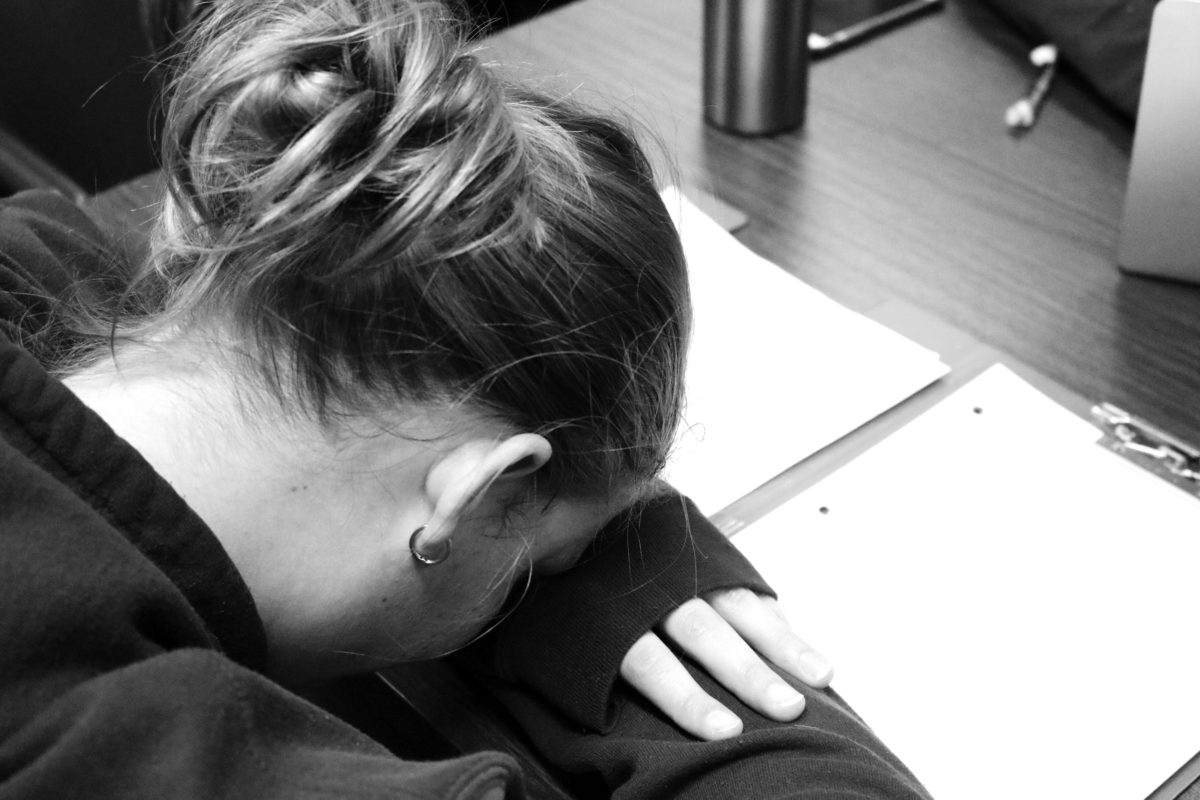When two St. Thomas University students sent an email to students asking them to participate in a mental health study, they expected to get approximately 100 participants. Instead, they received 195 applicants.
Psychology honours students Danielle Caissie and Jessica Gilbert were surprised by the response.
“It was a little bit overwhelming that day to just watch [the number go up], we were like ‘Oh my gosh,’” Gilbert said. “It was good, we just weren’t expecting it to happen so quickly.”
Gilbert and Caissie are working with STU psychology professors Suzanne Prior and Marvin Claybourn for their honours theses. The research team is studying students’ mental health to understand how it changes throughout the semester, while also testing students’ resilience, coping methods and academic behaviour.
“We don’t necessarily have a directional hypothesis yet, but we’re assuming that all of the factors like mental health, coping styles and resilience level and self-stigma have an impact on academic behaviours,” said Caissie.
“We’re just hoping to gain a better understanding of students’ mental health and well-being and whether different coping styles are helpful or harmful to well-being and academic behaviour.”
Prior and Claybourn developed the idea, designed the method and the study.
“They’re the principal investigators on this study,” Gilbert said. “I can’t speak to them of how that came to be, but I know that they’re both excited . . . about the study.”
Both Gilbert and Caissie are focusing on different concepts in their research. Gilbert is exploring internalization and stigma and Caissie is studying resilience.
“I’m really interested in how resilience impacts these things so like having the ability . . . to bounce back after tough situations, so I’m kind of interested in looking at how people who are higher in resilience, maybe how they have different coping styles if they do or different well-being,” Caissie said.
The pair didn’t get to choose the research topic, but they were both happy with the outcome.
“We wanted to do an honours thesis [but] you don’t really get to pick what topic you do get, but I think we were both pretty pleased with the research topic for sure,” Gilbert said.
“Mental health and well-being are really important and university is a stressful time, [so] I just think that gaining new insight into the area is important.”
The team developed six surveys that will be completed by each participant over a six week period. The first survey was completed at the end of October. For each survey a participant completes, they will receive a $10 incentive, which Gilbert and Caissie believe was part of the reason there was a significant turnout.
However, the pair also thinks the large turnout was amplified by the stress students face during this time of the semester.
“I think students are under a lot of stress so they’re very willing to talk about that. This is a topic that’s pretty relevant to most university students, whether you’re doing really well emotionally or you’re not doing so well,” Caissie said.
“Mental health and well-being is relevant to everyone so I think students are ready to talk about that.”
Although their research has just begun, the duo is looking forward to seeing the results.
“I’m excited to see the final results, like more so now than when we first started researching it, but I think it’s got a little bit of momentum behind it and I think that’s awesome [to create] awareness,” Gilbert said.
Caissie is also hoping their research will make a difference for students.
“I’m hoping that the results on our study might be able to have an impact on support services that are offered to students and just kind of help them have a better understanding of factors that go into a student’s well-being.”

